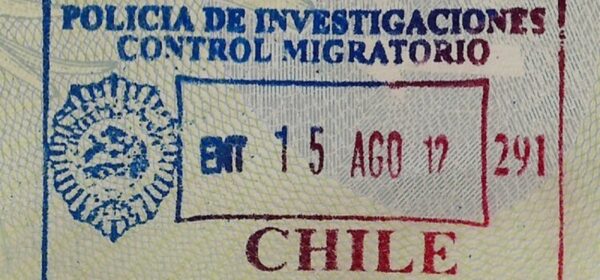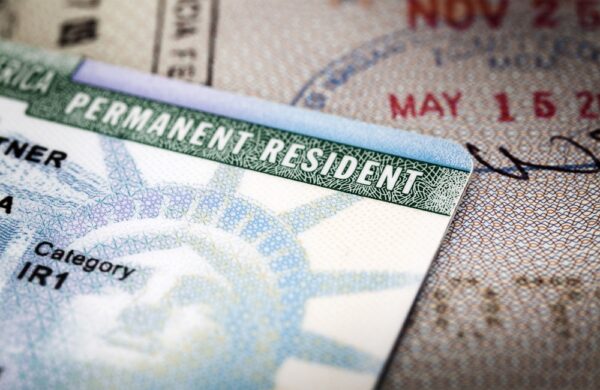Dreaming of building your career in Germany? Understanding how to apply for a work visa in Germany is the first step toward turning that dream into reality. Germany has many visa options that are available for professionals, skilled workers, and students who wish to work in the country. It is also worth noting that the process includes preparing essential documents, showing the requirements, and following some procedures of application. All types of work visas have distinctive requirements, so you need to know what you actually want. Thus, an understanding of the key processes and the common mistakes that people make can help you take the first steps towards thriving in one of the strongest job markets in Europe. Ready to get started? Let's begin!
Who Needs a Germany Work Visa?
Not every foreign national requires a work visa in order to enter Germany. Swiss and EU/EEA nationals have full access to the German job market and are not required to hold a visa or residency permit. Some third-country nationals do not have visa requirements. Additionally, certain nationals can apply for a residence permit prior to starting work in Germany and enter the country without a visa. This applies to citizens of:
- Australia
- Israel
- Japan
- Canada
- Republic of Korea
- New Zealand
- United Kingdom of Great Britain
- USA
However, there are third-country citizens who need a visa. Other foreign skilled workers (citizens of non-EU countries) must apply for a national visa (D visa) to work in Germany. However, these foreign nationals must have professional experience. For short-term visits up to ninety days, non-EU nationals cannot use the Schengen visa as a work permit for Germany.
Eligibility

Understanding how to apply for a work visa in Germany involves knowing the eligibility requirements. Any foreign national who meets the requirements to work in Germany is eligible to apply for an employment visa. The “Act on the Residence,” which governs foreigners' residency issues in Germany states that the following groups are qualified to apply for a German employment visa:
- High-qualified foreign workers like researchers and scientific personnel.
- Intra-corporate transferees like specialists and managers
Third-world nationals who are qualified professionals, have a university degree or a non-academic vocational certification, and meet the following requirements are also eligible and urged to apply for a German work visa:
- You have a valid job offer.
- Your educational background must be considered equivalent to a German degree.
- The profession you want to pursue in Germany is experiencing a shortage of qualified personnel.
- Employees over 45 years of age must have a minimum gross earning of €45,540 annually.
Required Documents to Apply for a Germany Employment Visa
You will need to provide some documents to show to the German embassy or consulate in your home country that you meet the requirements for a work visa. When applying for a German work visa, these documents are as important as the visa interview.
- Two application forms
- Two passport photographs
- Proof of health insurance
- Proof of residence
- Valid national passport
- An employment contract
- CV
- Cover letter
- Proof of academic qualification
- Proof of clean criminal record
- Approval from the Federal Employment Agency
- Proof of paid visa fee
- Declaration of accuracy of information
How to Apply for a Work Visa in Germany
Learning how to apply for a work visa in Germany involves knowing the work visa application process. If you meet the conditions and are eligible to apply for a work visa, proceed as follows:
1. Job Confirmation: You must have a solid job offer before you can begin the process of applying for a work visa. There is an exemption if you wish to apply for a job seeker visa and begin your search in Germany.
2. Choose a suitable visa: Consult the German Federal Foreign Office's Visa Navigator or ask a German mission about the appropriate work visa.
3. Check requirements: Learn about the particular requirements for a German work visa in your country of origin, along with the prerequisites and required paperwork for the application.
4. Make a visa appointment: After you've gathered all the necessary paperwork and found the visa you need, you may schedule a time to submit your application. Please be aware that it often takes a month or more to process.
5. Pay the application fee
6. Attend the interview
7. Wait for response
Where to Apply for a Germany Work Visa
German work visa applications should be done through the German representative office in your home country that handles visa admission. This could be any of the following.
- A German consulate
- The German embassy
- A visa application center
Processing Time for a Germany Employment Visa
It takes roughly one to three months to process a Germany work visa. The processing period is also based on your case and the number of applications the embassy is currently receiving.
What to Do After Arriving in Germany
Once your German work visa has been granted, you are free to enter Germany. However, in order to receive a German residence permit, you still need to finish a few steps when you get there. You should visit the Foreigner's Office in Germany, which is closest to where you live. Although some offices allow walk-in applications, others require appointments before your interview. You will have to show up for an interview and turn in the necessary paperwork for a residency permit. The German authorities will guide you through this process. The documents are:
- Proof of German language
- Proof of job offer
- National valid passport
- Residence permit application form
- Health insurance confirmation
- Report of clean criminal record
Your job contract specifies how long you can keep your permit. You will have a two-year permit if your contract is for two years. As long as you continue to hold your job, you are free to extend it as often as you like.
Can I Relocate to Germany Without Having a Job?
You cannot stay in Germany for more than three months if you are not an EU citizen unless you are employed or enrolled in school. Nonetheless, if you are eligible, you can apply for a job-seeker visa, which will let you remain in Germany for up to six months while you search for work. You will be deported if you are found to have been in Germany for more than three months without the proper visa. This will have an impact on future prospects for immigration to Germany. You might also be subject to other legal penalties, such as paying a fine. The only time you can move to Germany without a job is when you're married to a German citizen.
German Work Visa Fees
The cost of the visa varies depending on where you apply. However, the typical price is between €75 and €100, and it must be paid in local currency.
Can I Study on a Germany Employment Visa?
No. You cannot enroll in a formal study program while you are on a German work visa. Instead, you'd need a student visa for this. Nonetheless, if you are in Germany on a work visa, you can enroll in a German language school.
How Long Can I Stay in Germany on a Work Visa
Your original German work visa is valid for the term of your job. If you have a permanent job contract, your German Work Visa will probably be granted for three to four years. Once this expires, you can apply to have your German work visa renewed.
Benefits of a Germany Work Visa
Knowing how to apply for a work visa in Germany is crucial to unlocking the numerous benefits that come with working in this thriving economy. Let’s get into it.
1. Private Health Insurance
Private health insurance, also known as private Krankenversicherung (PKV), is a public health insurance option in Germany that is primarily accessible to high-earning employees, independent contractors, and public servants. These private insurance rates are determined by factors other than income, such as age, health, and coverage level. Additionally, to fill in the gaps in the baseline public health coverage, employees with public health insurance can buy additional private plans.
2. Additional Retirement Plans
Private retirement plans are a common addition to the state pension system in Germany since they give workers more financial stability in retirement. Public pensions are reliable, but they might not be enough to meet increased retirement standards. Private pension plans can help in this situation.
They enable more customized retirement income options, including lump-sum withdrawals and structured distributions, as well as greater investing freedom. A balanced approach to retirement is achieved by providing employees with both private and public pension schemes, which combine the flexible benefits of private plans with reliable public pensions.
3. Sick Leave
Although sick leave is always a valuable perk, COVID-19 gave sick leave in Germany more significance. In a German company, workers are entitled to 100% of their pay for six weeks of sick leave. For each absence over three days, the worker must provide the German employer with a medical letter. Should they resume employment prior to the six-week term expiring but subsequently become ill again due to the same condition, the clock will continue to run. Workers may be eligible for more than one six-week leave term annually if the leave covers different illnesses or other particular situations. Each situation is handled separately.
4. Caregiver Benefits
Benefits for German employees include unpaid leave to take care of close family members. German law defines “close relatives” broadly. Statutory provisions cover both long-term circumstances and short-term emergency care. For emergency short-term care, employees may take up to ten days off. The worker must give notice as soon as possible. Under certain conditions, workers may additionally take up to six months of full or partial leave to care for a close family.
Conclusion
Knowing how to apply for a work visa in Germany requires careful preparation and access to information. So ensure you follow the necessary instructions and submit a complete application. Moreover, you can consult the German embassy or consulate to prepare for a potential interview to increase your chances of a successful application.
















